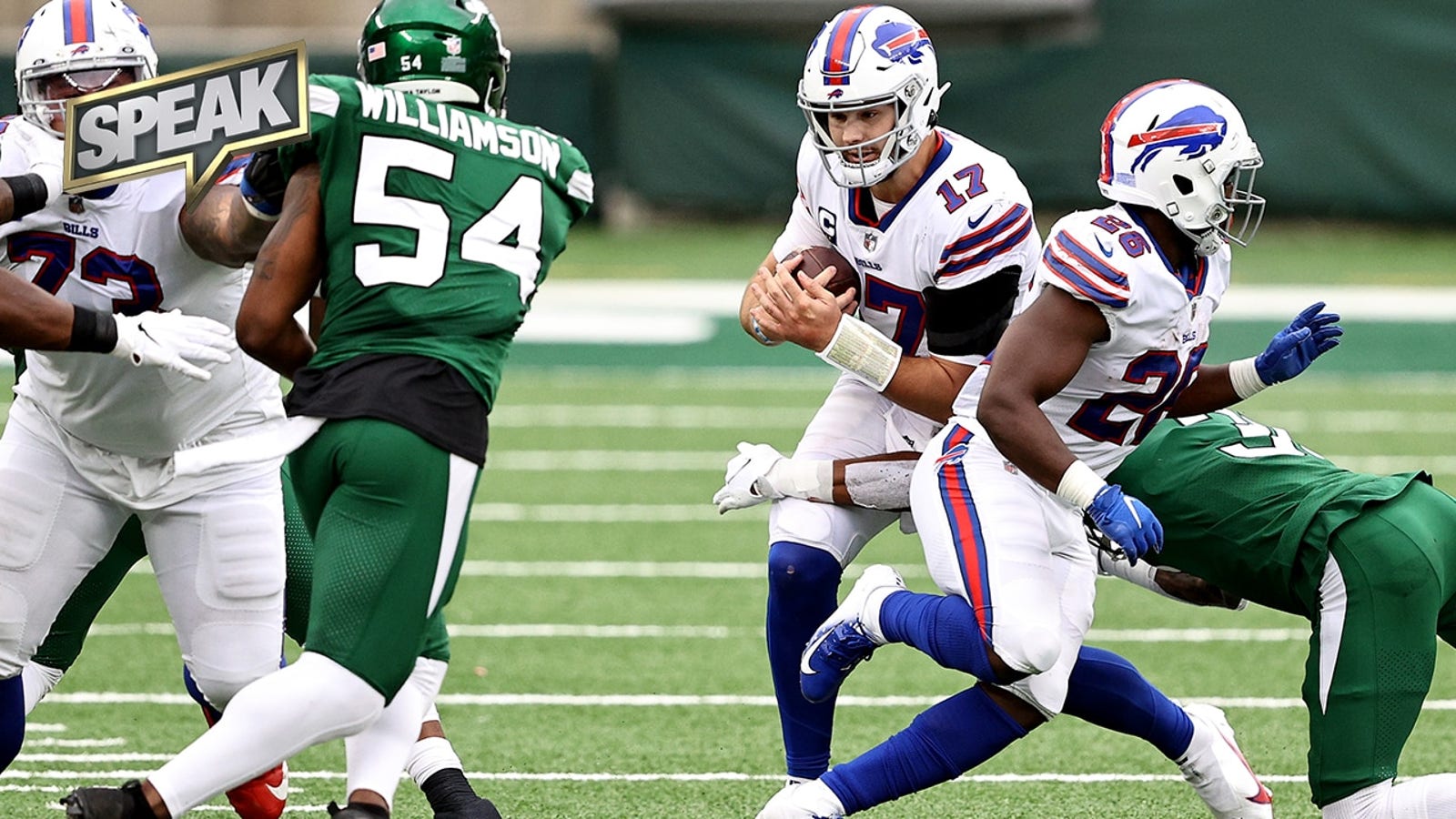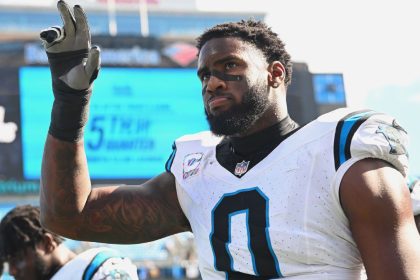The New York Jets have consistently said they’re interested in developing quarterback Zach Wilson, even with Aaron Rodgers working as QB1 for 2023.
But does that even make sense anymore for New York, which picked Wilson at second overall in the 2021 NFL Draft?
Going back to last season, the Jets and Wilson appeared destined for a breakup. New York essentially demoted him to the bottom of the depth chart. Quarterbacks Mike White, Joe Flacco and Chris Streveler played over Wilson at different points in the season. The Jets were desperate for a serviceable quarterback during their playoff push. And largely due to their shortcomings at the position, New York missed the postseason.
That’s why the Jets were committed to adding a veteran quarterback. They arguably got the best one on the market: Rodgers. But before New York traded for him, Wilson told reporters he would make life miserable for the starting QB by putting up a fight in the competition for the starting job. It’s fair to say that’s not happening here.
Even so, Rodgers played along.
“He’s going to make my life hell in practice,” Rodgers said two days after the trade, via ESPN, “and I’m going to make his life heaven off the field.”
Wilson has expressed in the past how much he admires Rodgers. So if there’s mutual respect, maybe this can all work out.
ADVERTISEMENT
The case for keeping Wilson and developing him
Wilson’s value is near zero. New York can’t expect to get much, if anything, in return for him in a trade. It’s tough to consider the team getting a sixth-round pick in exchange for a player it picked at second-overall, which — at the time — was an asset that would be worth multiple first-round picks.
So given that NFL teams can carry 90 players until Aug. 29 (when they trim to 53), the Jets could see it as smart business to develop Wilson for the time being.
How is the working relationship so far?
“I think it’s been good. … He’s been a sponge. I think Zach has handled this as good as a professional can handle this,” Jets coach Robert Saleh said Tuesday. “There’s no doubt in my mind that Zach is going to get so much better through this experience. And I am confident that he is going to turn into the player we know he can be.”
Wilson has a career completion percentage of 55.2. He has thrown 15 touchdowns and 18 interceptions in 22 games played during his first two seasons. He averages 182.8 passing yards per game. On film, Wilson looks like he’s still struggling with basic passing concepts. He is prone to improvisation. He struggles with downfield accuracy, perhaps in part because he was reported to be dealing with a case of the yips in 2022. Many of his pre-draft weakness remain all too present in his game in the NFL.
“Part of my opportunity here is to be a great mentor to him and to teach him fundamental stuff,” Rogers said, via ESPN. “To allow him to be around me and, through osmosis, just pick up some things that can help him in his career. That’s what happened to me, being around Brett [Favre].”
The difference between Rodgers and Wilson? We didn’t see much of what Rodgers could do in the years he backed up Favre. So there’s no saying how the development process worked for him. Was he a mess, like Wilson? There’s no saying.
Maybe — just maybe — Wilson can develop behind Rodgers, who considers retirement every offseason. If he leaves the Jets this year or next, maybe they can develop Wilson to be The Guy when Rodgers leaves.
So what might it cost them? That’s the real question.
The case for parting ways
Wilson is on the third year of a four-year contract, with a fifth-year option. Just from a timing standpoint, it’s fair to wonder whether New York will actually play him ever again. Rodgers has committed to playing in 2023. He’s interested — though not committed — to playing in 2024. At that point, the Jets will have not exercised Wilson’s fifth-year option and they will not have figured out if he can hack it in the NFL. So they might just have to let him hit free agency.
Why keep a developmental quarterback that you’ll never use?
Roster space is precious for a deep and young unit like New York. The Jets really have to ask themselves: Who can help us win a Super Bowl? Wilson isn’t doing that. He’s not a backup-caliber quarterback at this point, given the tremendous inconsistencies in his game. If Rodgers missed time, the Jets would need stability. That is exactly what Wilson does not provide.
And finally, there’s the matter of Wilson’s compensation. He will have a cap hit of $9.6 million in 2023. He will also make about $3.8 million in new money. The Jets are going to be cap-strapped both in 2023 and 2024, given they acquired Rodgers’ massive deal. Wilson has the seventh-largest cap hit on the team this year and the eighth-highest next year.
It’s expensive to develop him. He takes up a roster spot. And there’s no saying whether there will actually be a payout at the end. They likely won’t get draft compensation for Wilson in a trade. They may not re-sign him to the roster past 2024.
My take
The Jets should do what they can to get Wilson prepared for preseason. And they should let him play a lot during those exhibition games. With any luck, he will perform at a high level.
That’s when they should trade him. When they acquired Rodgers, the Jets made it clear they didn’t see a path for Wilson to take back the reins. He takes up too much cap space to be a third-stringer. He can’t be a backup. New York needs to find a way to move on from him and recoup as much value as possible.
When Rodgers decides to retire, the Jets will have to find a new quarterback of the future. But with any luck, they won’t have to think about that for another two years.
Prior to joining FOX Sports as the AFC East reporter, Henry McKenna spent seven years covering the Patriots for USA TODAY Sports Media Group and Boston Globe Media. Follow him on Twitter at @McKennAnalysis.
NFL trending

Get more from National Football League Follow your favorites to get information about games, news and more











